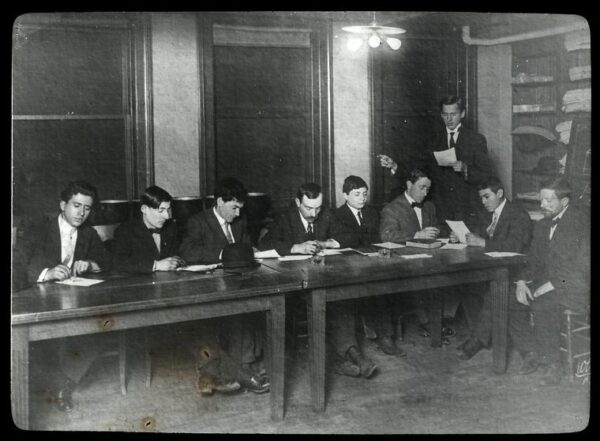Author Archive

FAUX PAS LAW
Job candidates and human resources professionals have the unenviable challenge of conducting productive online job interviews throughout the pandemic.

DRUG- AND ALCOHOL-FREE WORKPLACE POLICIES
By the production disruptions and safety risks posed by a worker intoxicated or stoned on the job, employers can and should maintain comprehensive written drug and alcohol policy covering testing, prevention, and the handling of suspected on-the-job drug- or alcohol-abuse.

WHO LURKS ABOUT YOUR WEBSITE?
State and federal laws validly prohibit businesses from discriminating against disabled persons. In California, the Unruh Act provides that disabled people “are entitled to the full and equal accommodations, advantages, facilities, privileges, or services in all business establishments of every kind whatsoever.”

STAYING ABREAST
WORKPLACE PANDEMIC POLICIES & PROTOCOLS
Through 18 months and counting, the pandemic has brought one constant for California employers: change.
Since its initial directive last November, Cal/OSHA has regularly revised and expanded business’s required protocols to check COVID-19’s proliferation.

CAUTIONARY TALE EPISODE 44
FINED DINING
The Labor Commissioner has made an example to deter industry-wide wage violations, settling with San Francisco-based Z & Y Restaurant for $1.6 million on alleged underpayment of 22 workers.

PAY FAIR
In their bid to attract qualified job candidates in today’s high demand- short supply labor market, employers must strictly comply with the California Fair Pay Act.

CAUTIONARY TALE EPISODE 43
COVID SICK LEAVE NOT OPTIONAL
The California Labor Commissioner has cited Bodega Latina Corporation $447,836 for the failure of three southern California El Super grocery stores to provide supplemental paid sick leave (PSL) for 95 workers impacted by COVID-19.

TIGHTEN UP
REQUIRED VACCINATION FOR CERTAIN HEALTH CARE WORKERS
Tightening a statewide order issued only the week previous, the California Department of Public Health (CDPH) is now ordering certain health care providers – including hospitals, surgery centers, and medical clinics – to require COVID vaccination status of all “workers.”

SEXUAL HARASSMENT PREVENTION TRAINING
By this past January 1, California employers with five or more on payroll were to have provided “at least two hours of classroom or other effective interactive training and education regarding sexual harassment to all supervisory employees” and at least one hour of such training and education “to all nonsupervisory employees in California.”

RECALCULATING
On July 15, 2021, the California Supreme Court clarified the calculation for the additional hour of so-called premium pay whenever an employer fails to provide an employee with a compliant meal or rest/recovery period.
